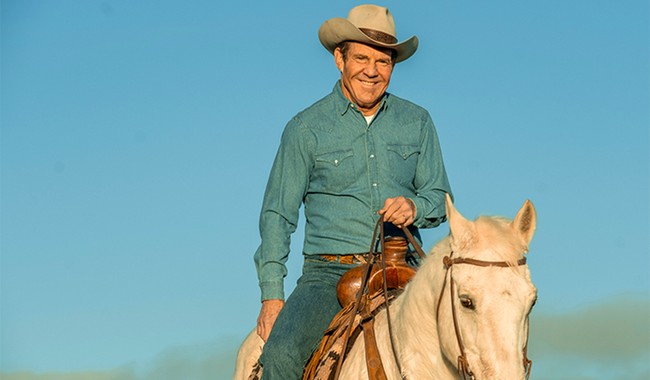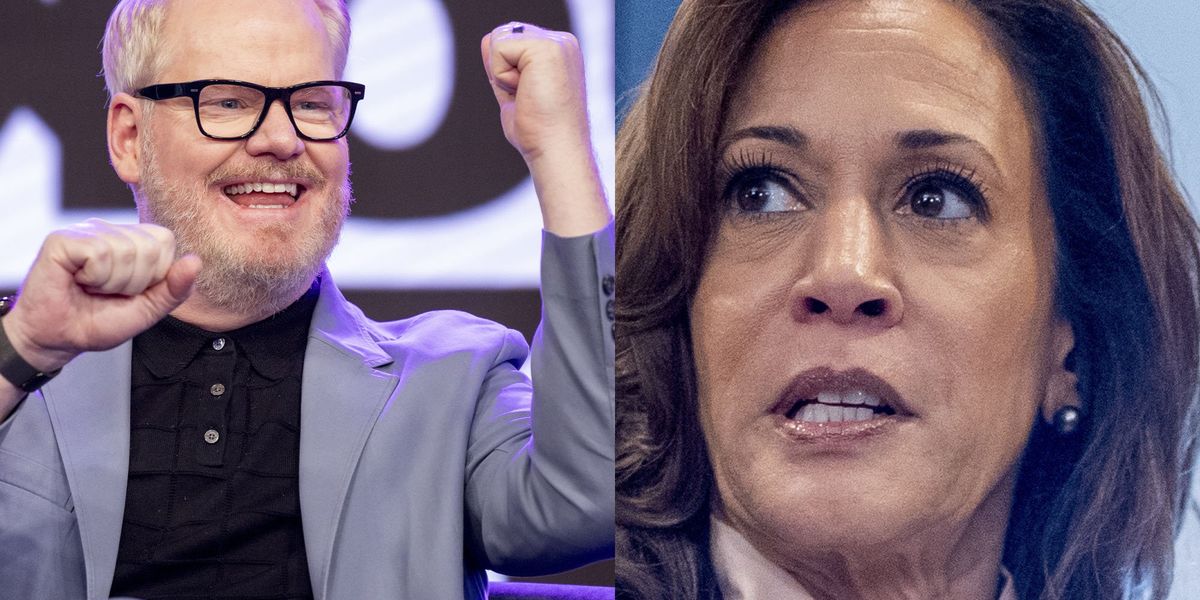Ronald Reagan left office nearly four decades ago, and he passed away twenty years ago. He left a massive mark on history by forcing the Soviet empire into collapsing of its own internal contradictions, revived both the American economy and American spirit, and set a standard for conservative governance and personal fortitude that few have even approached, let alone attained.
Yet Reagan has not received his due from popular culture, and still inflames political passions decades after he left public life. A new film, Reagan, opens today to fill that gap and offer a far more sympathetic look at one of the great American presidents.
Reagan covers the entire scope of Reagan’s life, a choice that makes the first part of the film feel a bit rushed and choppy. Unlike other biopics such as Ray and Walk the Line, which took a portion of a life to speak to its entirety, Reagan opts for a more epic scale. That choice pays off in the last act especially, but it begins working well by the time we get to Reagan’s run for governor in California. By the time the film begins to tackle the presidency, Reagan and star Dennis Quaid really hit their stride, and it transitions from vignettes to a more natural historical narrative.
Interestingly, and perhaps tellingly, Reagan uses a framing narrative device that allows his story to be told through the eyes of his enemies, in this case two Soviet spies. Jon Voight plays a retired KGB official who tries to explain to a younger Russian intelligence officer the real reason the Soviet Union collapsed. Voight’s character, ‘Viktor Petrovich,’ explains that Reagan and his determination to stop communism got overlooked as the catalyst for their defeat, and proceeds to tell the story from a perspective of a respectful opponent.
While that plays a bit clumsily at first, it’s a rather telling commentary on how Reagan gets perceived to this day — and not just abroad, either. Reagan’s efforts starting in his days leading the Screen Actors Guild fight against communism in the labor movement led to the fall of the Berlin Wall, Viktor and the film remind us, a historic victory over an enemy “without a shot being fired,” as both Reagan and Viktor point out.
Our popular and political cultures have dismissed or diminished Reagan ever since, too. This device might feel a bit clunky at times, but in its way it provides a cutting criticism of those in the West who argue that either Mikhail Gorbachev ended the Cold War rather than Reagan or that Reagan just happened to be lucky to be president when the Soviet Union fell apart of its own accord.
Other than the opportunity to revisit Reagan’s optimism and savvy, the best part of Reagan is Dennis Quaid. Always a fine actor, Quaid really delivers the essential qualities of Ronald Reagan in this performance. It’s not all just joke-telling and warm fuzzies either, but also the passionate and direct Reagan in governing and high-tension diplomacy. This could have turned into a caricature easily, but Quaid keeps it grounded to reality and provides a depth that few would credit the actual Reagan of having.
Penelope Ann Miller gets most of the rest of the work as Nancy Davis Reagan, who got caricatured at least as often as her husband did in popular culture. Miller also avoids the clichés and gives us a three-dimensional Nancy Reagan. one who devoted herself to her Ronnie and whose love, support, and sometimes sharp direction helped shape Reagan’s career. Mena Suvari doesn’t get enough to do as Jane Wyman, unfortunately, as she lights up the screen when she appears.
There are some friends who show up in the film as well. Nick Searcy plays James Baker and Kevin Sorbo plays Reagan’s youth pastor, Reverend Cleaver. Robert Davi has fun with Leonid Brezhnev (that could be an oxymoron, as anyone who lived through the Brezhnev era can attest). And a couple of casting surprises are delightful, including Leslie-Anne Down as Margaret Thatcher and Summer of ’42 star Jennifer O’Neill as the older version of Reagan’s mother Nelle. There’s yet another casting surprise that I won’t spoil, but see if you can catch it.
All in all, Reagan gives us a long-overdue look at a true giant of the 20th century, and a man who put an unmistakable stamp on it as the American Century. It’s well worth the ticket price, especially for those who have longed to see Ronald Reagan get his due from American culture. If we want to continue to shape that culture, we need to support efforts such as these — and Reagan is worth the investment.
On the Hot Air scale, Reagan gets a 5:
- 5 – Full price ticket
- 4 – Matinee only
- 3 – Wait for Blu-Ray/DVD/PPV rental or purchase
- 2 – Watch it when it hits Netflix/cable
- 1 – Avoid at all costs
I’ll be putting my money where my mouth is by going to the theater tonight with my family, in fact, even though I’ve already seen it. I want to experience it in a cinema setting and see how audiences react to it. Let me know how you react to it in the comments.
Reagan is rated PG-13 for “violent content and smoking.” There’s nothing so violent in here that you need to shelter your teenagers and adolescents from it, and the smoking issue is just silly. It’s fine for younger children too, but I can’t imagine that it will keep their attention.
Read the full article here




![Walz Whacked Himself During CNN Tag Team Interview With Kamala [VIDEOS] Walz Whacked Himself During CNN Tag Team Interview With Kamala [VIDEOS]](https://www.lifezette.com/wp-content/uploads/2024/08/2024.08.30-02.55-lifezette-66d1dd7b05fc1.jpg)




![Megyn Kelly Unleashes on LA Fire Chief Over DEI Policies in Fiery Rant [WATCH] Megyn Kelly Unleashes on LA Fire Chief Over DEI Policies in Fiery Rant [WATCH]](https://www.lifezette.com/wp-content/uploads/2024/11/2024.11.22-02.25-lifezette-67409458c5c7e.jpg)